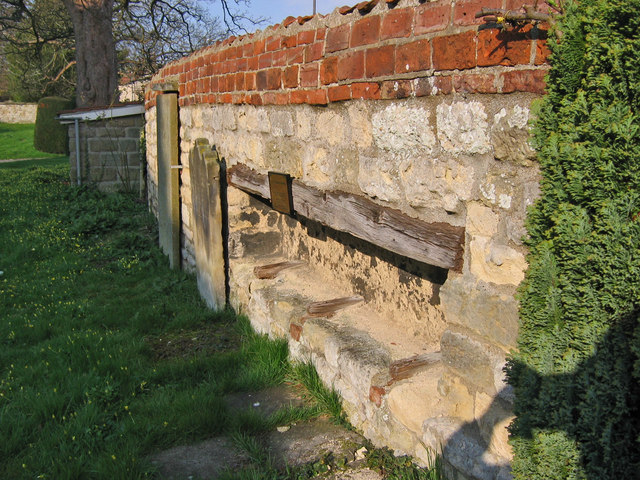At left, a coffin-rest as photographed by Stephen Horncastle as part of the Geograph Uk project.
This particular place was used to store the parish coffin. When one died, the coffin was used to carry the body to the grave and the simply shrouded remains then placed into the Earth. The coffin rested in this facility after burial until the next mortal needed the transport service.
In small villages, you didn't even rate your own pine box in the 18th century.
I like this photograph because it illustrates the sense of community and community embrace that persisted in death.
I'm trying to illustrate the same community thread in my work. I'm writing a short right now that has to be purged before I can work on the next novel. I've had a hard time with it - but haven't we all?
I couldn't find the proper mirror for the reflection of the person my killer has become. I couldn't find a way to highlight the trans-formative power of education at the hand of a small town. Of course, the reflection I seek is in the town itself.
I sat in a cafe a year ago and watched a mother teach her child to lie.
The mother, in the presence of her own mother, ask the child who was probably in primary school which grandmother was his favorite.
The child answered innocently that he preferred Grandma Helen. The matriarch present was not Helen.
The mother couched the child to try again and told him the he was in error. That Grandma Zoe was his favorite and that it wasn't nice to say otherwise. The instruction was more elaborate with additional esteem-defeating measures thrown in for good cause.
Now, in telling the story, I could focus this slight tale on the boy through a first-person point of view. I think I can do better as a close third as it allows the image of the mother to be cast in broader terms than I might be able to do from the perspective of the child in the first alone.
I'm trying the same with my small town murder tale.
It's hardly a mystery who has died or who has performed the murder.
It is a mystery how the protagonist learned to kill. That's the story we want to tell. It doesn't "just happen."
Killers are made.
I want to show that evolution in succinct turns of the short-story's compressed timescale.
Wish me luck.
I hate murders without reason. I'm trying to give this one purpose, if not reason.
If you're in a small town, lock the doors.
I've ink and I'm willing to use it.
You should spill a little, too.


No comments:
Post a Comment